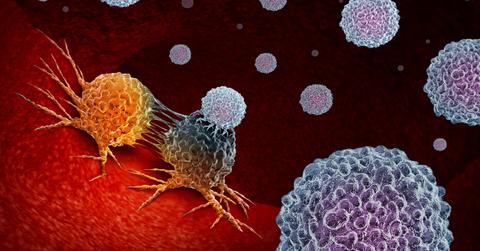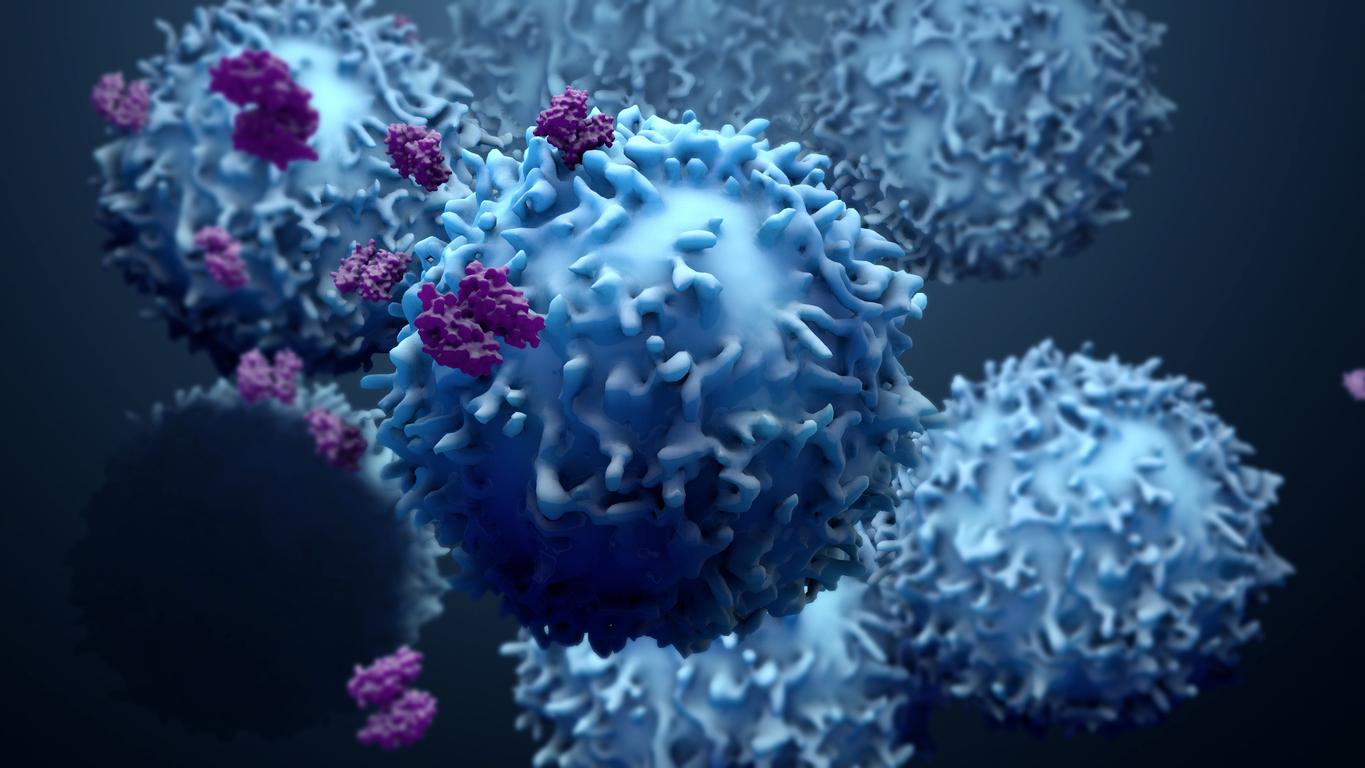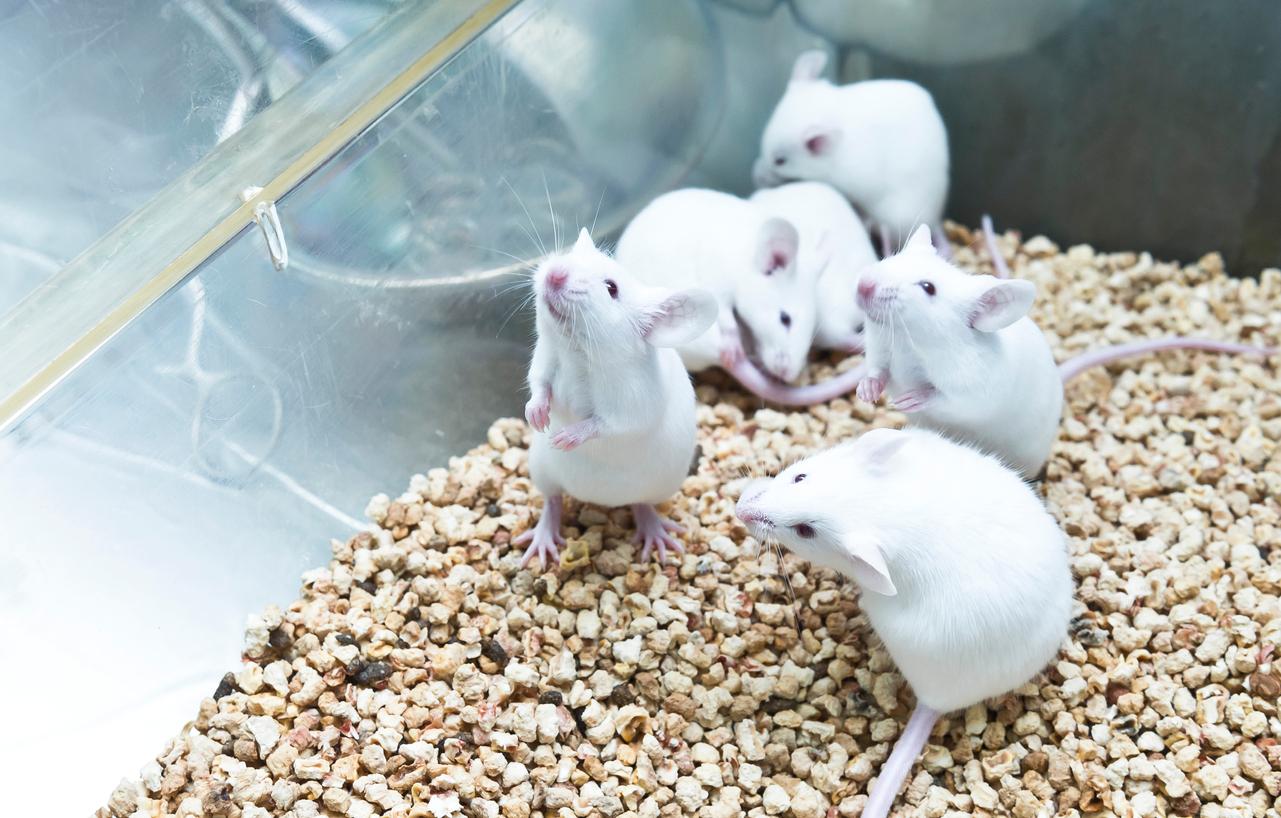
Newly discovered immune cell 'may treat all cancer'
By Mark PygasJan. 21 2020, Updated 7:55 a.m. ET
A new immune cell, which was discovered by accident, could be used to treat all kinds of cancer according to a team of British scientists. According to the BBC, scientists at Cardiff University were exploring how the body's immune system responds to cancerous cells when they discovered a new T-cell inside people's blood.
T-cells have receptors, called a TCR, on their surface that allows them to "see" at a chemical level and destroy threats to the body that they recognize. They're already used in several different treatments for cancer, many of which have shown promising results.
CAR-T, a drug made from a patient's genetically engineered T-cells, has been able to take some patients from being terminally ill to being in complete remission.
However, the treatment has been limited until now because T-cells have only worked against a limited number of cancers where the threat to the body is clear. It's also struggled to combat "solid cancers" that form tumors.
The new T-cell that the scientists discovered has been able to identify far more cancers than usual in lab conditions. In a lab, the cell was able to find and destroy lung, skin, blood, colon, breast, bone, prostate, ovarian, kidney and cervical cancer cells. Healthy cells were left intact.

The team of scientists is still trying to figure out how the T-cell is so effective. They believe it may have something to do with how this cell's receptor interacts with a molecule called MR1, which is on the surface of every cell in the body. The scientists are theorizing that MR1 may be flagging the distorted metabolism of cancer cells to these new T-cells.
"We are the first to describe a T-cell that finds MR1 in cancer cells - that hasn't been done before, this is the first of its kind," research fellow Garry Dolton told the BBC.
Professor Andrew Sewell, lead author of the study, said: "It raises the prospect of a ‘one-size-fits-all’ cancer treatment; a single type of T-cell that could be capable of destroying many different types of cancers across the population. Previously nobody believed this could be possible.”
The team believes that they may be able to extract a cancer patient's T-cells and then genetically modify them to detect MR1 as well. Those modified cells would then be duplicated in a lab and injected back into the patient to hopefully seek out and destroy the cancerous cells.
Though that process would be some time away, as the technique has only been tested on animals and on cells in the laboratory.

When injected into mice modified to have human cancers and human immune systems, the engineered T-cells were able to recognize MR1 and showed encouraging results, comparable to the CAR-T therapy discussed above.
In a laboratory setting, the team was able to use modified T-cells from cancer patients to destroy the patient’s own cancer cells as well as other patients’ cancer cells. If all goes well, the team hopes to use the method on patients towards the end of the year.
Sewell added: “We hope this new TCR may provide us with a different route to target and destroy a wide range of cancers in all individuals. Current TCR-based therapies can only be used in a minority of patients with a minority of cancers. Cancer-targeting via MR1-restricted T-cells is an exciting new frontier."
Lucia Mori and Gennaro De Libero, from University of Basel in Switzerland, told the BBC that the research had "great potential" but warned that it was still too early to say whether the method would work in humans or on all types of cancer.
"We are very excited about the immunological functions of this new T-cell population and the potential use of their TCRs in tumour cell therapy," they said.
Daniel Davis, a professor of immunology at the University of Manchester, added: "At the moment, this is very basic research and not close to actual medicines for patients. There is no question that it's a very exciting discovery, both for advancing our basic knowledge about the immune system and for the possibility of future new medicines."
